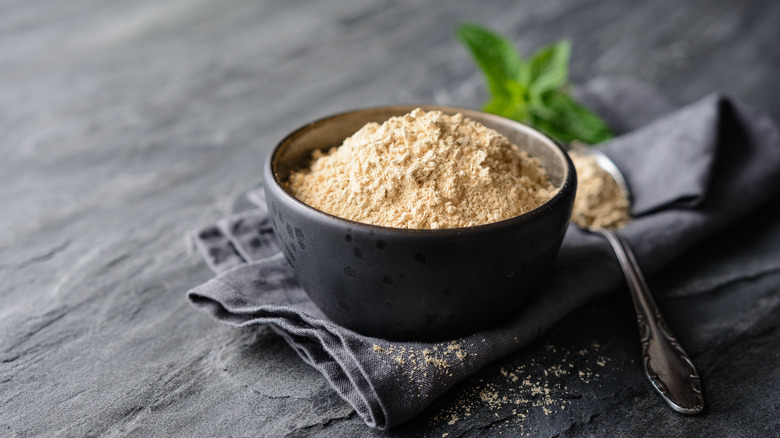The Real Health Benefits Of Maca Root
Maca is a plant species found in the central Andes mountains and part of the mustard family. Maca has been used traditionally by the Peruvian native population for more than 2000 years as a medicinal adaptogen to prevent disease and as a nutraceutical to promote fertility in humans and animals, via Evidence-Based Complementary and Alternative Medicine. Macamides, one of the chemical compounds deemed responsible for many of the potent health properties of maca, have been studied on both an anecdotal and clinical scale, touting benefits ranging from energy enhancement to improved memory, and learning optimization to sexual desire. But one particular health benefit that has gotten significant attention from the scientific community relates to men's sexual health, including efficacy in sexual desire, virility, and fertility. While much of this evidence is still being further investigated from the scientific community, many studies show promise. So let's take a look at how maca's helping out the fellas.
Maca and men's sexual health
A systematic review conducted in 2016 rounded up evidence from 11 databases, including randomized clinical trials, and concluded that maca is effective as a food supplement to improve sexual function and fertility, with specific regards to men's sexual health (via Maturitas scientific journal). In particular, one randomized clinical trial sought to gauge maca's effects on 50 Caucasian men with mild erectile dysfunction and found positive effects in the maca-treated group v. the placebo group. The study concluded that the maca-treated patients had significant improvement in both performance and sexual satisfaction (via First International Journal of Andrology).
A different study published in the First International Journal of Andrology aimed to assess maca's effects on semen in 69 infertile male adults, supplied with either maca or a placebo over the course of 12 weeks. The study concluded there was no significant difference between groups when measuring semen volume, sperm motility, and sperm morphology, but found a significant difference in sperm concentration in the maca-treated group.
Another interesting study found surprising effects on men's sexual desire. In this 12-week randomized control study, men aged 21-56 years old received either maca or a placebo. The study concluded that maca had an independent effect on and improved sexual desire in men between 8 and 12 weeks of treatment. Though early research suggests maca is promising, additional clinical research can help provide more definitive evidence on the mechanisms by which maca seems to support men's health.
Risks and side effects
While there are special precautions and warnings for women, particularly with regards to pregnancy and hormone sensitive conditions, there's little evidence to suggest maca isn't considered safe for men. MedlinePlus suggests that maca is typically used by adults in doses of 1.5 to 3.5 grams by mouth daily for 6-16 weeks. Larger amounts may be safe, but it's best to consult with a healthcare professional before upping your dose, especially when treating specific conditions. When consulting with your healthcare professional, you'll also want to discuss any potential drug interactions. There currently exist no known supplement interactions, but you'll want to confirm this with your doctor. Additionally there's no strong evidence to suggest maca has any side effects, and its longtime use as a food source suggest a low likelihood for toxicity (via Drugs.com). Maca can be found in most health food stores as a ground powder, but it can also be eaten raw or cooked and stored for long periods of time.



